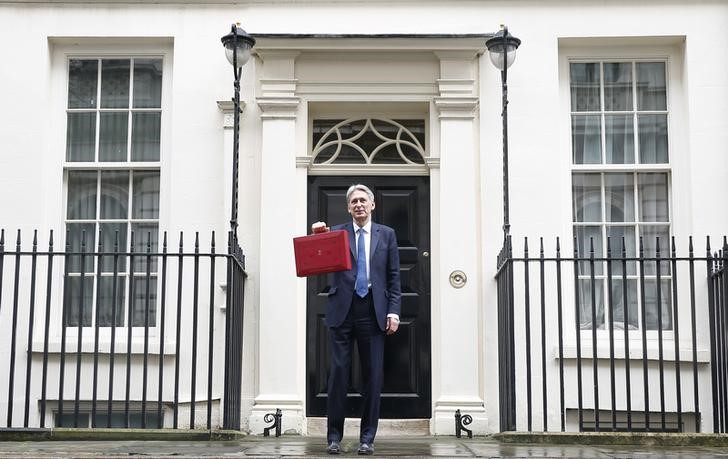LONDON (Reuters) - Britain has raised its official forecasts for economic growth for 2017 but lowered them for the following three years, Chancellor Philip Hammond said on Wednesday in Britain's first full budget since the referendum decision to leave the European Union.
The Office for Budget Responsibility forecast gross domestic product would grow by 2 percent in 2017, up from a forecast of 1.4 percent made in November, but lower than a forecast of 2.2 percent made a year ago, before the Brexit vote.
Hammond told parliament the OBR now saw growth in 2018 at 1.6 percent compared with November's forecast of 1.7 percent.
Growth forecasts in 2019 and 2020 were 1.7 percent and 1.9 percent compared with the previous forecast of 2.1 percent for both years. By 2021 the growth forecast was 2 percent, the same figure forecast in November.
Britain's economy had been expected to slow sharply after the Brexit vote in June. But consumers continued to spend heavily and helped the economy to grow by 1.8 percent, faster than all other Group of Seven economies in 2016 bar Germany.
However, signs are growing that shoppers are turning more cautious as the tumble in the value of the pound following the referendum pushes up inflation.

And Prime Minister Theresa May plans to launch Britain's EU divorce talks before the end of March, starting a process that is expected to make companies wary about long-term investments.